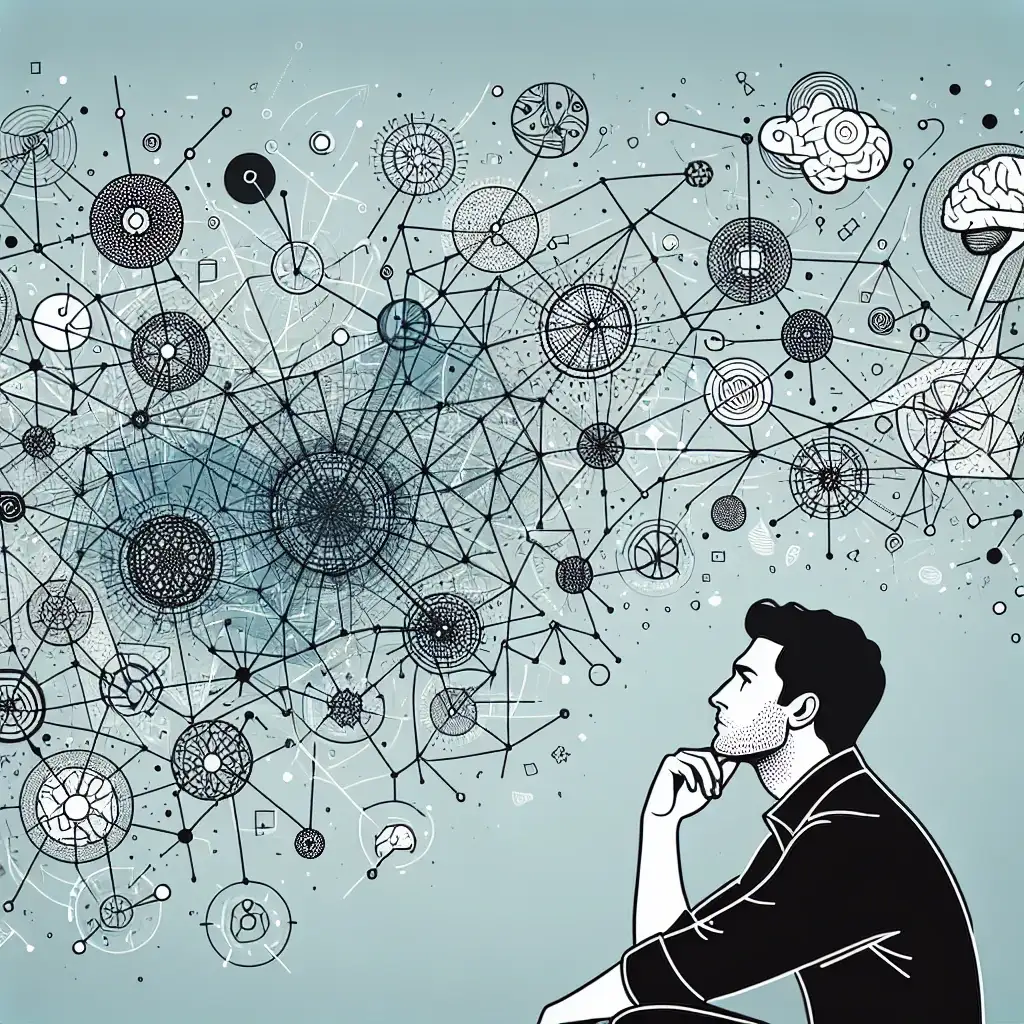Key Points
- Mapping your thought patterns can lead to self-awareness, problem-solving, and emotional regulation, among other benefits.
- Exploring various techniques like journaling, meditation, and cognitive behavioral tools can help you navigate the intricate terrain of your mind.
- Understanding thought patterns impacts not only individual growth but also interpersonal relationships and contributions to the community and society.
Have you ever wondered why you think the way you do, or how your thinking process influences your daily life? Understanding the landscape of our mental processes, or what I like to call “Cognitive Cartography,” can be an intriguing and transformative journey. Essentially, it’s about mapping your thought patterns to navigate through life more effectively.
What is Cognitive Cartography?
Cognitive cartography is a metaphorical way of describing how we can visualize and understand the complexities of our thinking. Just as a traditional cartographer maps out the physical terrain, cognitive cartography involves plotting out our mental landscapes. It explores how our thoughts, emotions, and behaviors connect to form patterns that influence our everyday lives.
Why Should You Map Your Thoughts?
Mapping your thoughts provides several benefits:
- Self-awareness: It helps you understand your own mental tendencies, such as recurrent thoughts or automatic reactions to certain situations.
- Problem-solving: By seeing the paths your thoughts usually take, you can identify new, more effective routes to overcome habitual problems.
- Emotional regulation: Understanding the triggers for certain emotions can help you manage them more proactively.
- Goal achievement: Clearer understanding of your thought patterns allows you to align your thinking with your goals.
How to Start Mapping Your Thoughts
Here’s how you can begin exploring the fascinating terrain of your mind:
-
Journaling: This is the equivalent of drawing your basic map. Regularly write down what you’re thinking about, how you feel, and how you react to various events. Over time, you’ll start to see patterns.
-
Meditation and Mindfulness: These practices help you observe your thoughts and feelings without judgment. It’s like watching the weather change on your map; you begin to understand what conditions lead to storms or sunny days.
-
Cognitive Behavioral Tools: Techniques such as cognitive restructuring involve questioning and challenging your automatic thoughts. Think of it as modifying your mental maps to better suit your journey.
-
Feedback from Others: Sometimes, external input can point out landmarks in your thoughts that you weren’t aware of. Trusted friends, family, or therapists can act as external navigators to help refine your map.
Examples of Thought Patterns
To give you a practical sense of what mapping might reveal, here are a few common thought patterns:
-
The Negative Forecast: This is when you predict negative outcomes routinely. For instance, thinking “I’ll never get this job” before an interview maps a route that may lead you to appear anxious or unconfident.
-
The Perfectionist’s Map: If you often think “This isn’t good enough” even when others praise your work, your mental map might be routed through an unrealistic territory of perfectionism, causing unnecessary stress and frustration.
-
The Positive Spin: On the flipside, consistently thinking “Every challenge is an opportunity to grow” charts a resilient and optimistic course through life’s ups and downs.
Continuing Your Cartographic Journey
Cognitive cartography is not a one-time task; it’s an ongoing exploration. As you change, so do your thoughts and maps. Regular revisiting and adjusting of your maps is crucial as you acquire new experiences and insights.
Why This Matters Beyond Yourself
Understanding your thought patterns isn’t just beneficial for individual growth; it also impacts how you connect with the world. Improved self-awareness leads to better interpersonal relationships and can enhance your contribution to community and society at large.
In conclusion, cognitive cartography is a powerful tool for anyone looking to delve deeper into the mysteries of their mind. By becoming familiar with the contours of your mental processes, you not only navigate life’s journeys more effectively but also enrich your experiences and relationships. Just like any skilled cartographer, with the right tools and persistent practice, you can chart a course to a more mindful, fulfilled life.
Explore More on ThinkPotion
Interested in understanding more about how our minds work? At ThinkPotion.com, there’s a whole world of articles covering the intricacies of psychology, self-improvement, and the science of everyday lives. Dive into our resources and continue your journey of self-discovery and beyond. Each article is a new map, leading you to unexplored territories of knowledge and insight. Happy exploring!

